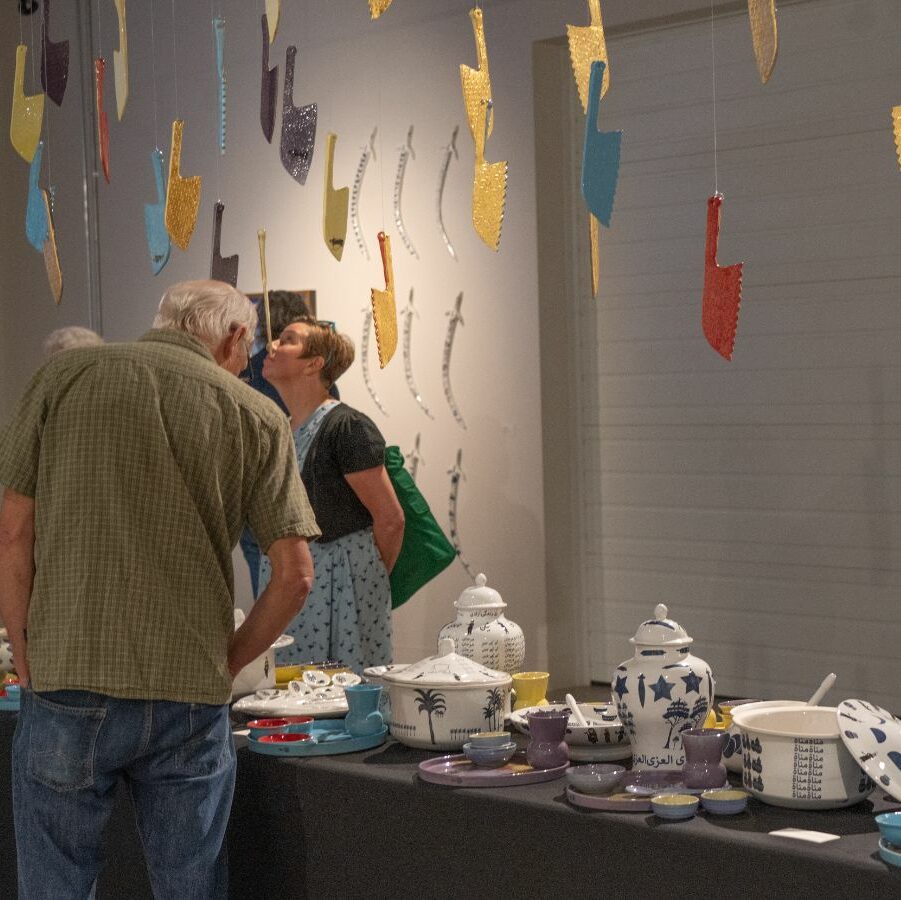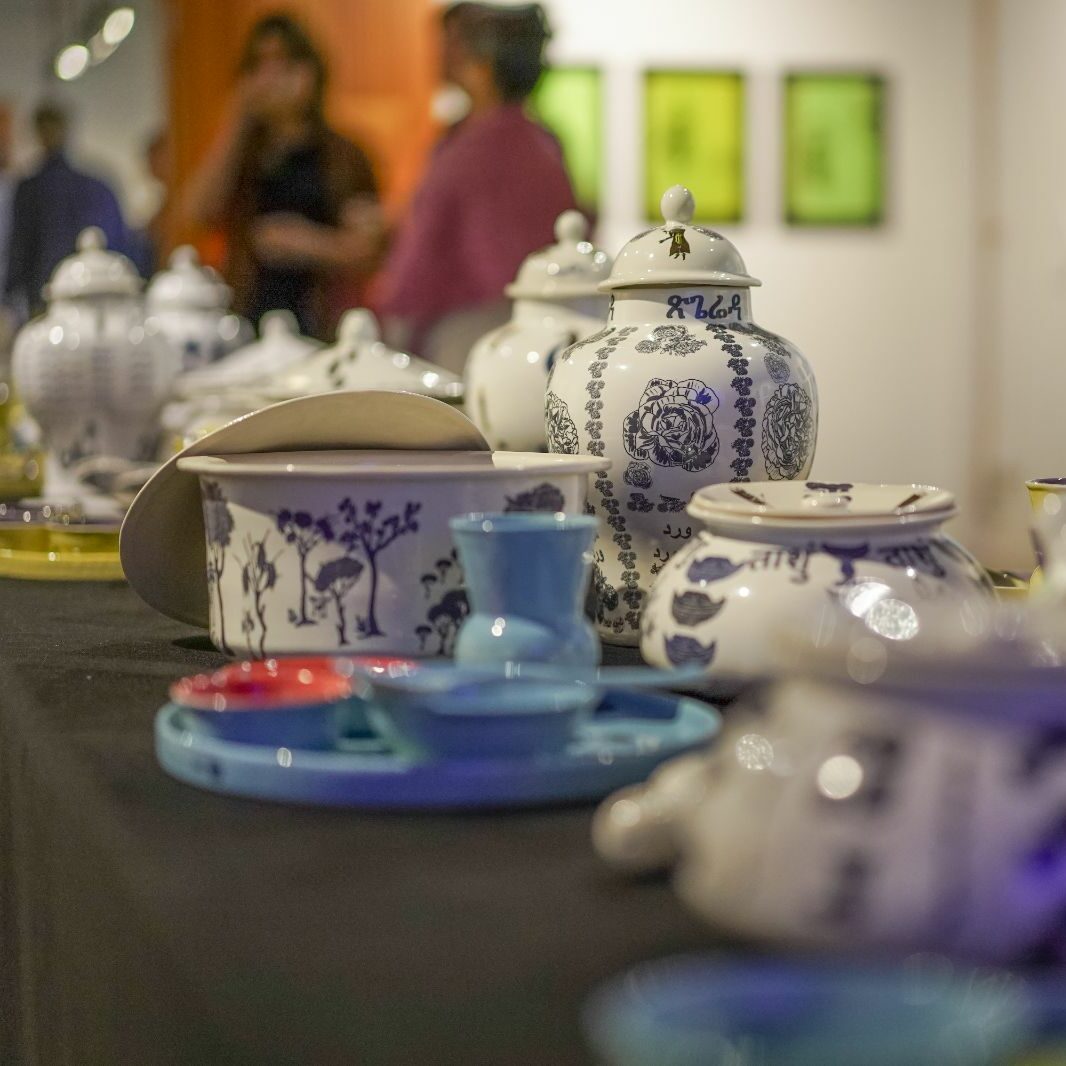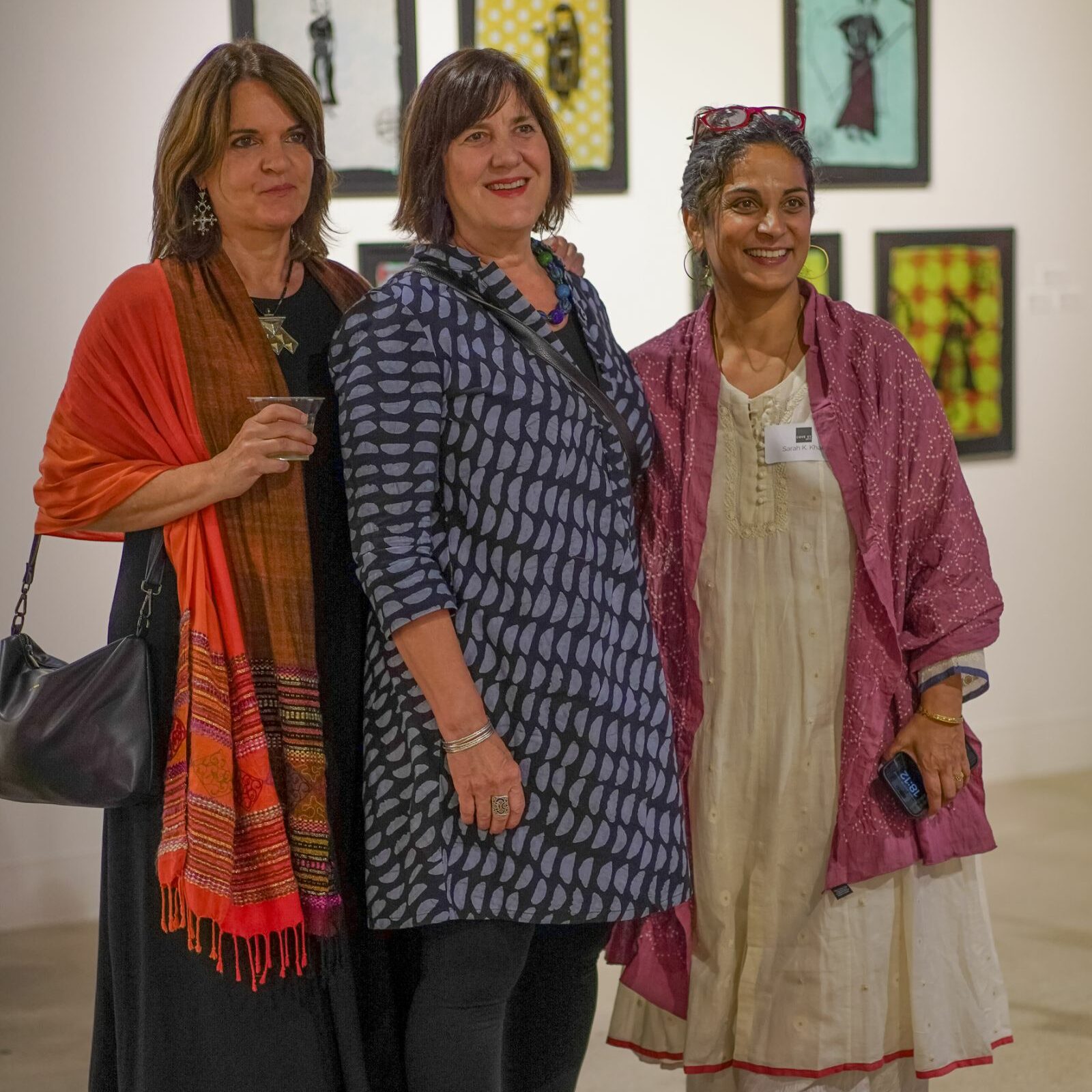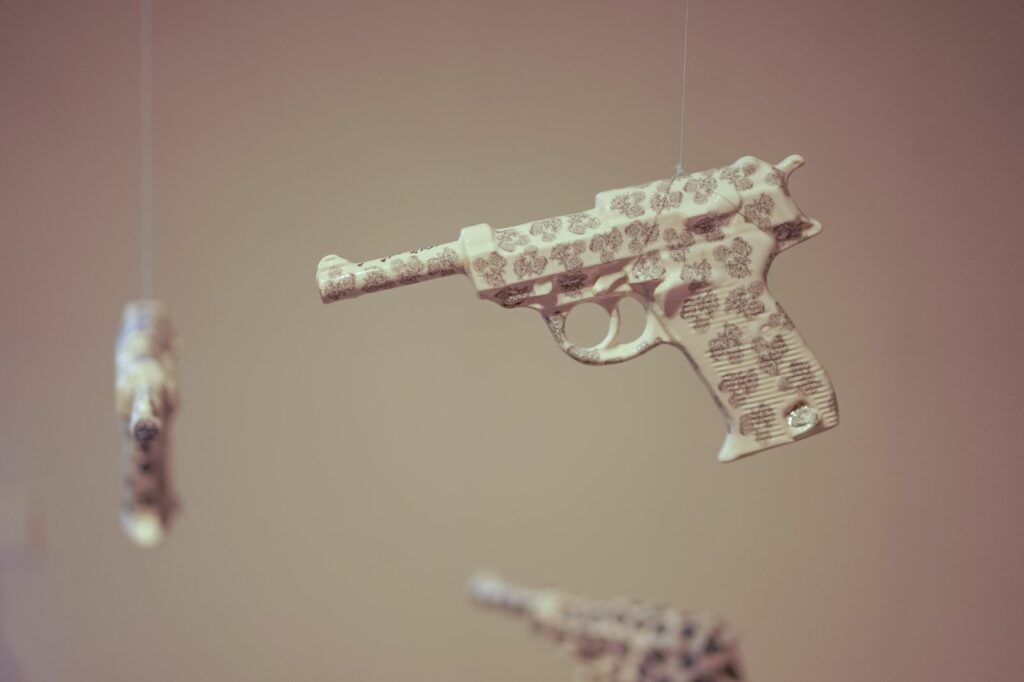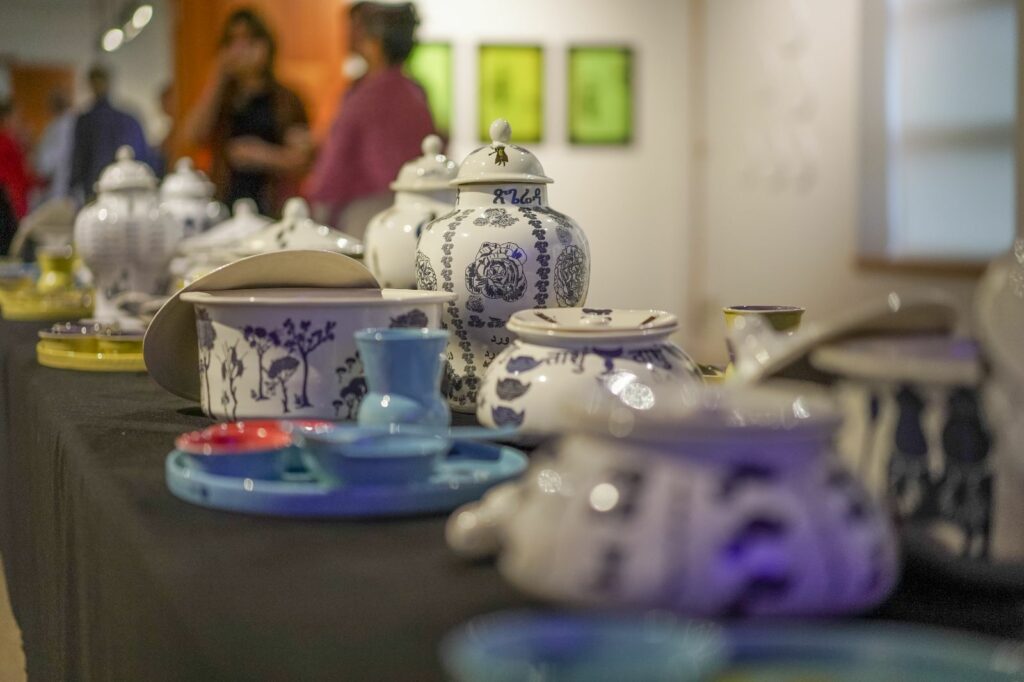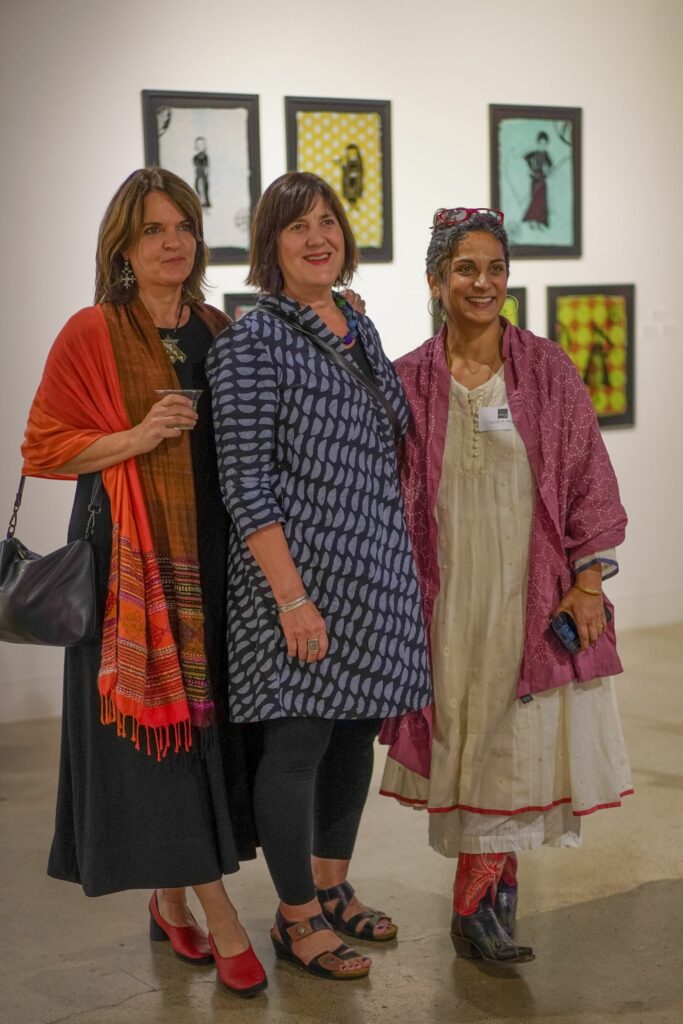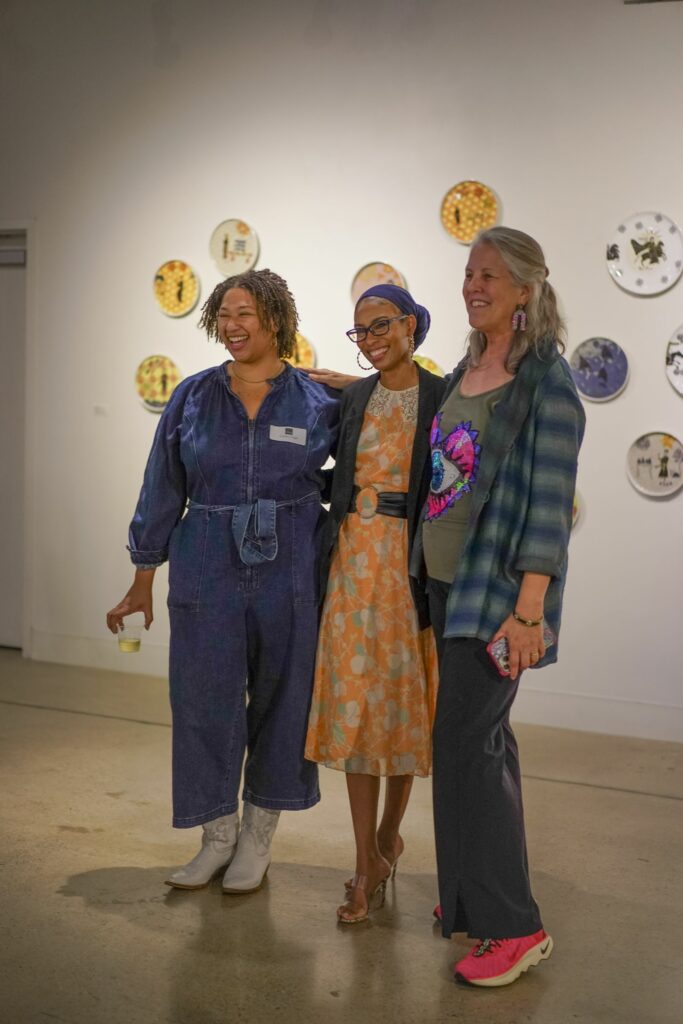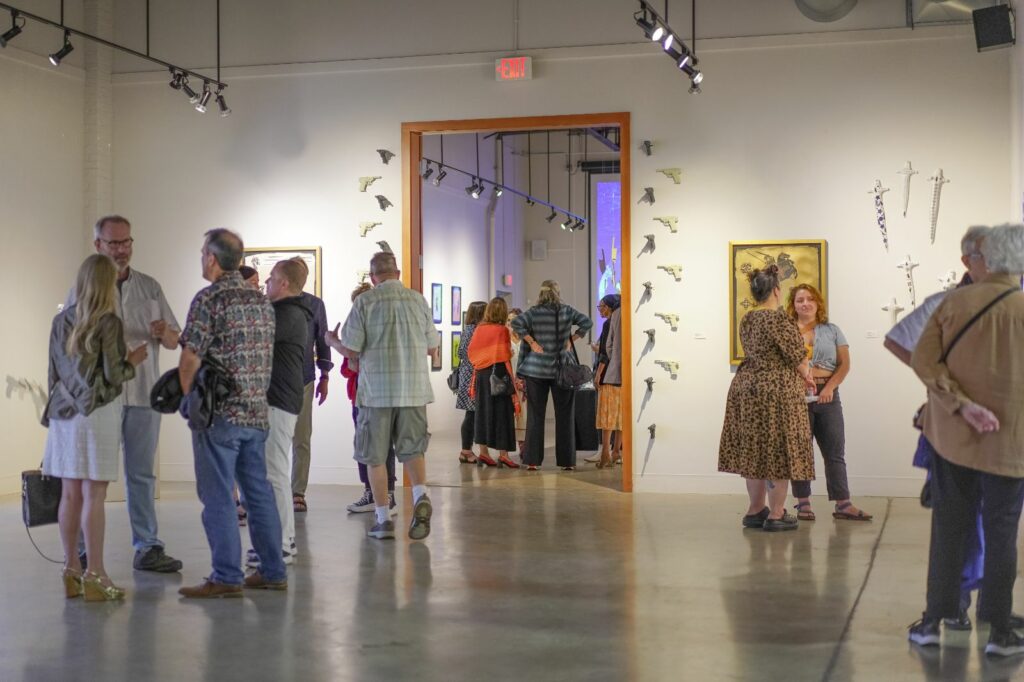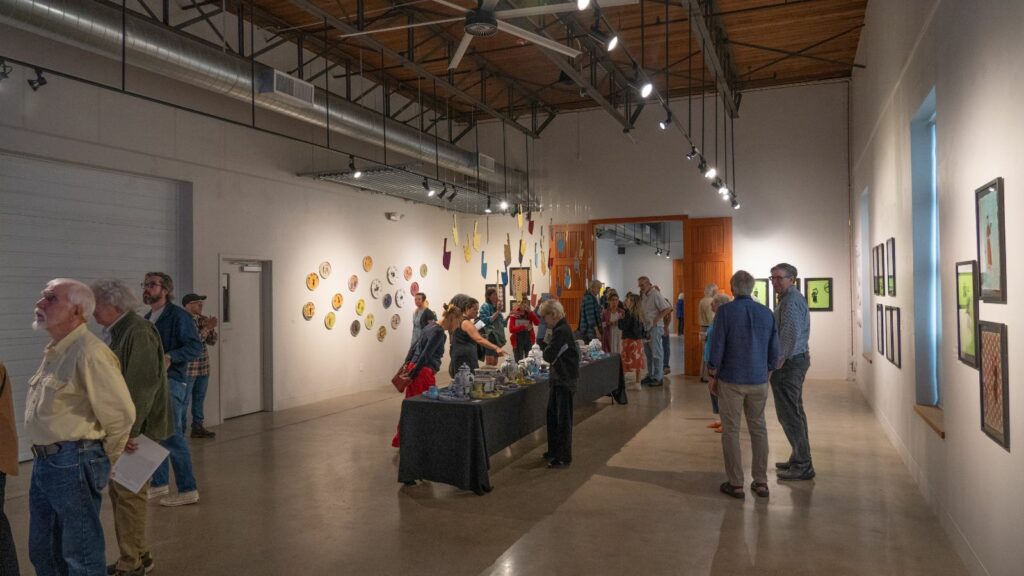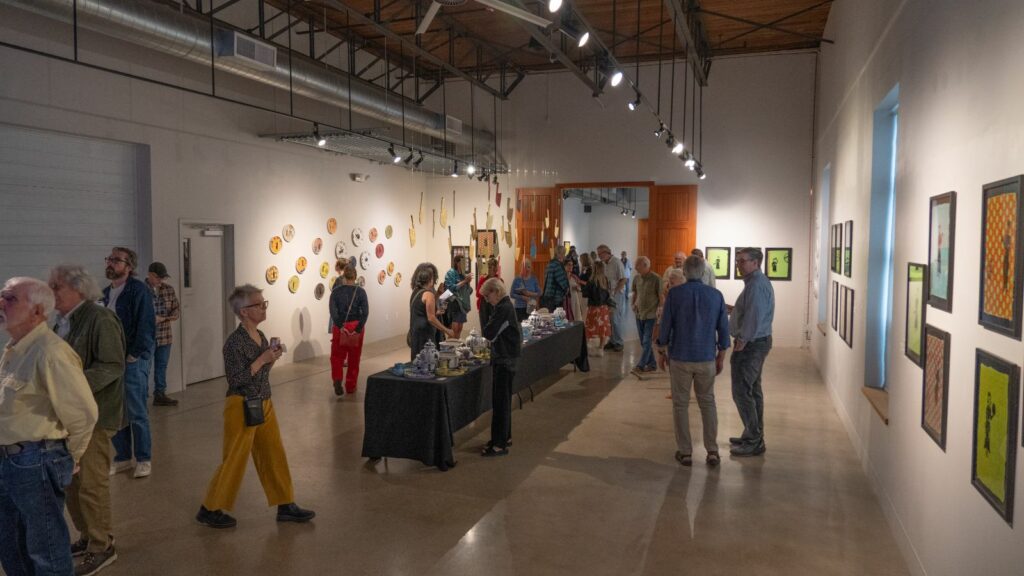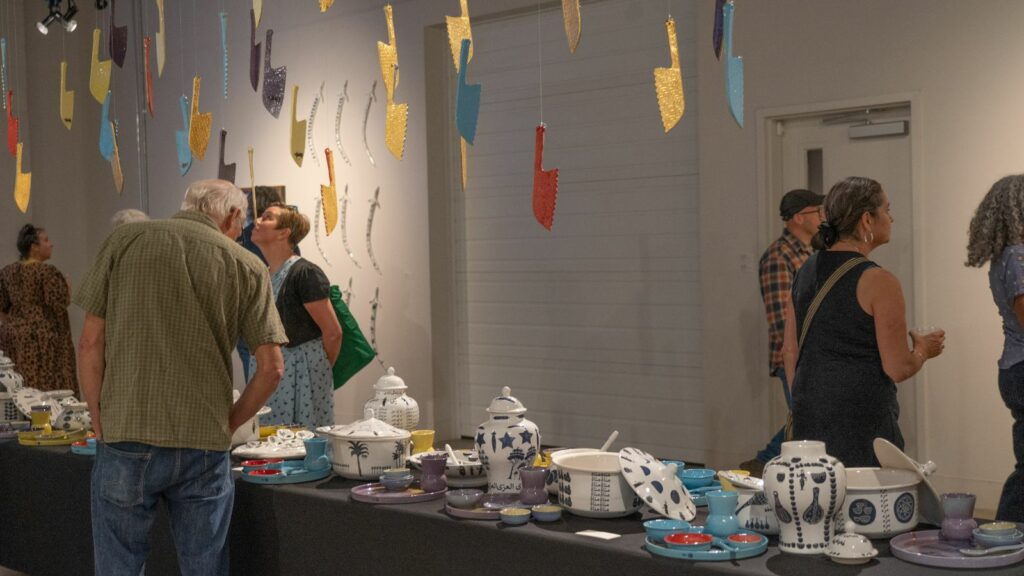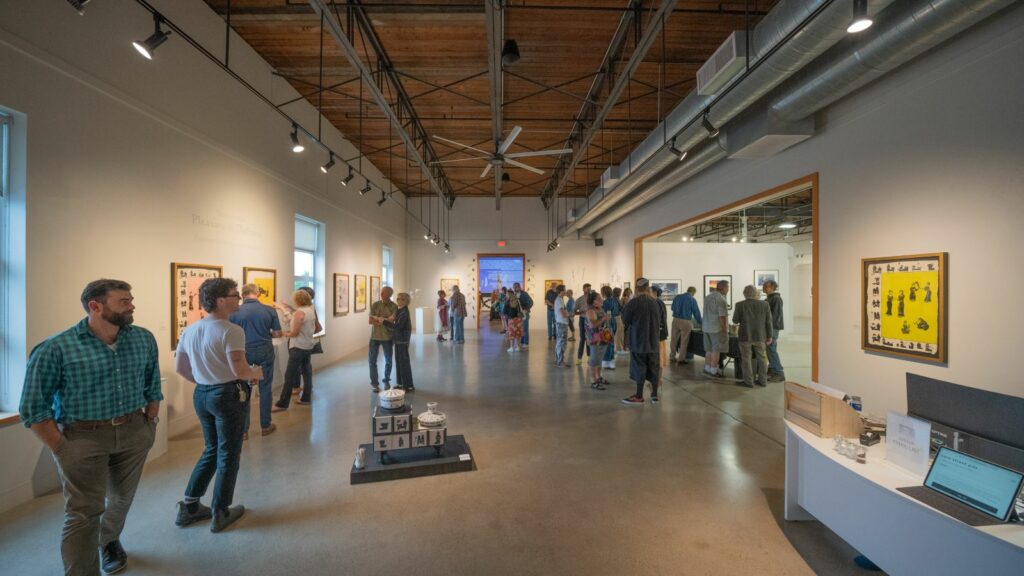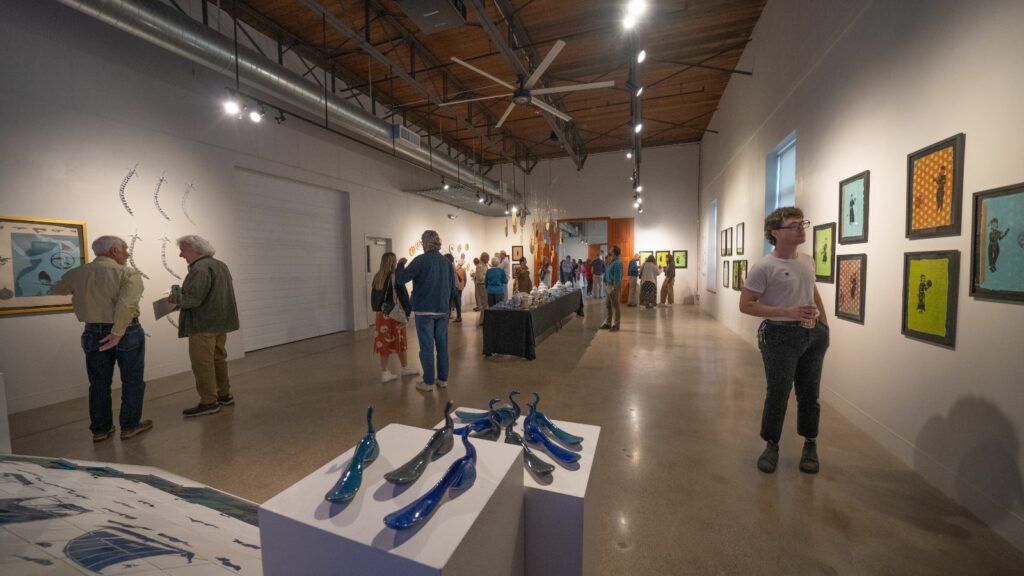
Sarah K. Khan: Pleasure & Defiance
Cove Street Arts | August 7 – October 17, 2023
Dismantling and Reframing The Book of Delights
Sarah K. Khan, a two-time Fulbright Scholar (2001-2002 & 2014-2015), pays homage to the cultures of the African Indian Ocean World, foodways and healing practices before European colonization. She continues her engagement with a 15th-16th century, Central Indian cookbook: The Book of Delights/Delicacies. Khan reimagines the cosmopolitan worlds with the Sultan canceled. Khan has created original lino-prints, ceramics, animations and sounds, all within a bold alternative story.
Khan’s project reignites visual and auditory senses for the duration of her installation. More importantly on a macro level, Khan reminds us of the indigenous and global majority cultures that constitute our world; and on a micro level, she magnifies what it means to be a Pakistani-North American.
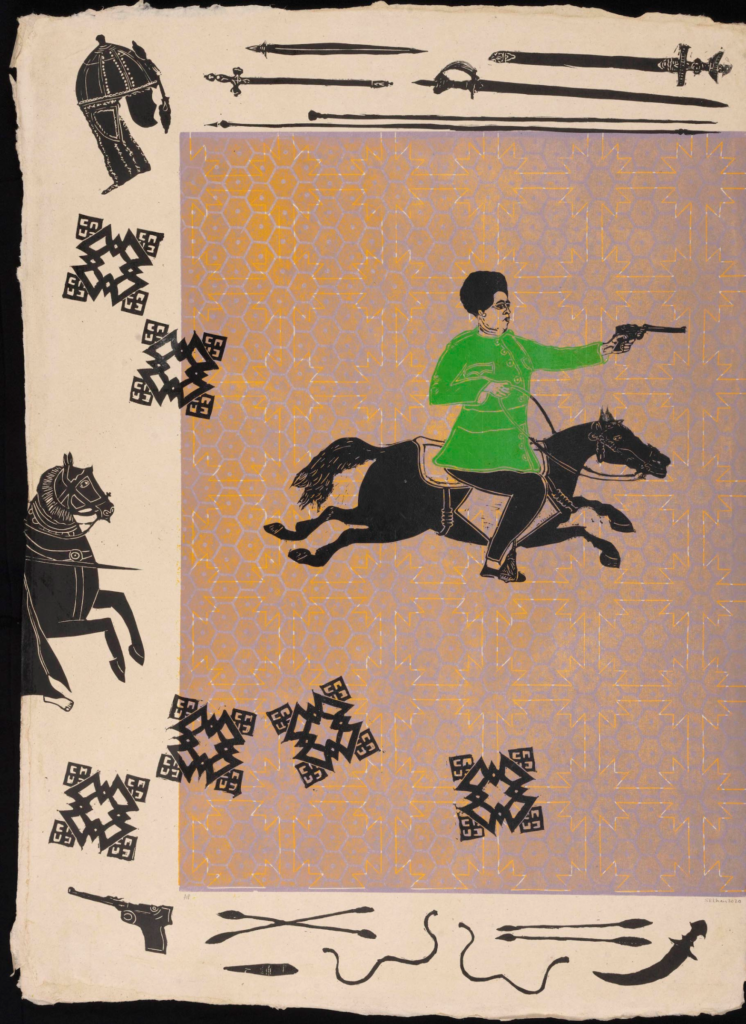
PRESS
Sarah K. Khan’s Feminist Take on a 16th-Century Cookbook
PORTLAND, Maine — In Nasir Shah’s Book of Delights (Niʻmatnāmah-i Nāṣirshāhī) women are depicted tending to the needs of Sultan Ghiyas al-Din Khilji (ruled 1469–1500). As part of her ongoing exploration of diverse food cultures, Pakistan-born artist Sarah K. Khan confronts this 16th-century Persian cookbook, which is held in the British Library, to liberate its unnamed African, Arab, Turkic, and Central Asian women so they may pursue their own pleasures… [read more on Hyperallergic]
Pleasure & Defiance, Gallery Tour
Artist’s Statement:
The Book of Delights (1469–1500 CE), sparked my recent bodies of work – prints, ceramics, motion graphics. The cookbook, written in Persian and illustrated in the Sultanate miniature painting tradition, depicts African, Arab, Turkic, and Central Asian women dutifully serving and surrounding the Sultan Ghiyath Shah of Malwa. He commissioned the cookbook in Shadiabad, his retirement City of Joy. Largely intact, the miniatures include detailed cookware, flora, and pastel-vibrant illustrations. Polyethnic attendants, frozen in half or three-quarter profiles, prepare spice-laden foods, medicinals, attars and aphrodisiacs with skill. At the Sultan’s request, the women hunt, fish, and engage in animated culinary, philosophical and religious debates.
The illustrated cookbook demands a recasting. Few notice the attendants who harvest, hunt, cook and debate. The original images portray cosmopolitan femmes/women who serve, and most likely service the Shah. We know little about these women’s lives. From where, in that vast Central Indian and African Indian Ocean World, did they come? What were their nuanced narratives? Did they consider the work a delight? I ask, if the polyethnic world of the zenāna/harem prospered unfettered, with the Sultan cancelled, what might these un-imagined lives and worlds dream into?
And here is where you find the work today. It is in dismantling and reframing The Book of Delights with an emphasis on the femmes, foodways, and plants that I expansively imagine. This action buries one visual narrative and births, not only seriously playful characters, but also selves and unimagined others too. By recasting the past, I assure boundless futures. – Sarah K. Khan
Portland Press Herald: Artists reach back in time to express contemporary ideas
Khan’s vision is so holistic and multifaceted that you should allow plenty of time to take it in. The premise of the show arose during a residency at the Indigo Arts Alliance, which curated this exhibition.
